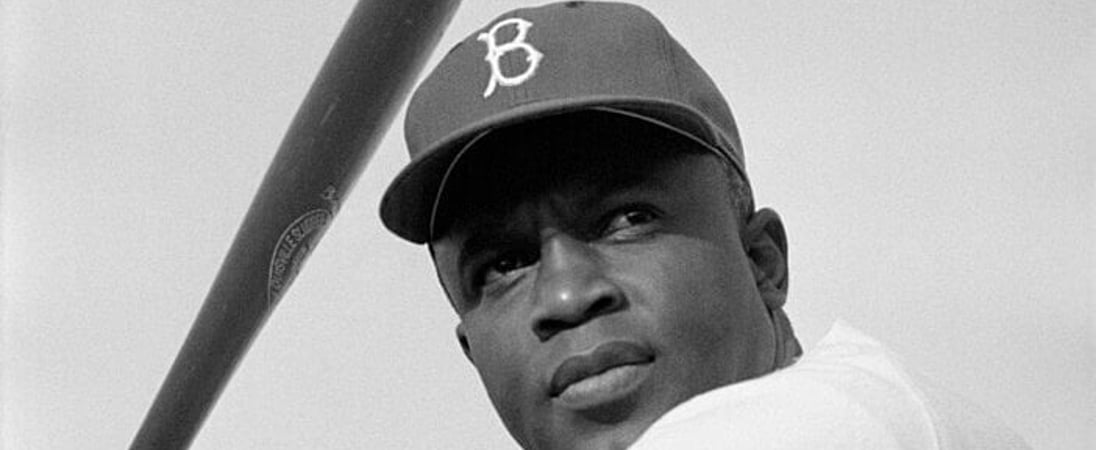
Jackie Robinson's birthday
Jackie Robinson, born on January 31, 1919, became a legendary figure in American history. He broke baseball’s color barrier in 1947, joining the Brooklyn Dodgers. His courage and skill challenged racial segregation in sports.
As a gifted athlete, he inspired many by showing resilience and excellence. Jackie’s legacy extends beyond baseball, symbolizing the fight for equality in America.
Jackie Robinson: Early Years and School Days
Jackie Robinson, born in Georgia, grew up during racial segregation. His family moved to California when he was young, seeking better opportunities. Growing up, Jackie faced many challenges due to his race. Despite this, he excelled in sports, showing remarkable talent early on.
In high school, Jackie’s athletic skills shone brightly. He played several sports, including football, basketball, and track. His performances were widely praised. He graduated from John Muir High School, where his sports talent was already evident.
Jackie then attended Pasadena Junior College. Here, he continued to impress with his athletic abilities. He not only played sports but also became a strong student. His determination and hard work helped him overcome obstacles.
In 1939, Robinson transferred to UCLA. He became the first student to win varsity letters in four sports: baseball, basketball, football, and track. His time at UCLA was not just about sports; he also focused on his studies.
Jackie left UCLA just before graduation to help his mother financially. However, his time at the university left a lasting impact, paving the way for his historic baseball career.
Jackie Robinson’s Triumphs and Legacy
Jackie Robinson’s journey to success began with the Brooklyn Dodgers in 1947. He broke Major League Baseball’s color barrier, which changed sports history. Facing racial discrimination, Jackie showed remarkable restraint and focus. His skill on the field spoke volumes, earning him the Rookie of the Year title.
In 1949, Robinson won the National League’s Most Valuable Player (MVP) award. His batting average was an impressive .342, showcasing his exceptional talent. Jackie helped lead the Dodgers to six National League pennants and one World Series championship in 1955. His impact on the game was undeniable.
Off the field, Jackie was equally influential. He used his fame to advocate for civil rights and social change. His efforts contributed significantly to the advancement of African Americans in sports and society. Robinson’s courage extended beyond baseball, as he became a voice for those fighting against racial inequality.
After retiring from baseball in 1956, Jackie continued to break barriers. He became the first African American to serve as vice president of a major American corporation, working with Chock Full o’ Nuts. Robinson also helped establish the Freedom National Bank, supporting economic growth in the African American community.
Jackie Robinson’s legacy is celebrated annually on April 15th, known as Jackie Robinson Day in Major League Baseball. On this day, every player wears number 42, his jersey number, to honor his contributions. Robinson’s life and career remain a powerful testament to resilience, excellence, and the ongoing struggle for racial equality.
Interesting Facts About Jackie Robinson
Youth Football Success: Before his baseball fame, Jackie Robinson was a standout football player at UCLA, where he was the leading rusher in the nation in 1939.
Hall of Fame Induction: In 1962, Robinson was inducted into the Baseball Hall of Fame, his first year of eligibility, cementing his place in baseball history.
Movie Star: Jackie played himself in the 1950 film “The Jackie Robinson Story,” showcasing his life’s journey to a wider audience.
Author and Speaker: He wrote an autobiography, “I Never Had It Made,” and was a sought-after speaker, using his platform to discuss civil rights and integration.
First African American TV Analyst: Jackie broke another color barrier by becoming the first African American MLB TV analyst in 1965.
Activist for Change: Beyond baseball, he actively campaigned for political change, supporting various political candidates and advocating for African American rights.
A Bank Founder: He helped establish the Freedom National Bank in Harlem, which was one of the largest black-owned banks in the United States at the time.
U.S. Postage Stamp: Jackie was honored with a U.S. postage stamp in 1982, becoming one of the first athletes to receive this recognition.
Also on this date...
National Hot Chocolate Day
Made with creamy milk and yummy cocoa, this sugary sweet treat is delicious when enjoyed by itself, or can be a great basic recipe that can then be used to get creative with by adding unique flavors, spices and even liqueurs.
National Fun at Work Day
Creating laughter and good vibes while tackling tasks, the office can be a playground of camaraderie, where work and play intermingle.
Eat Brussel Sprouts Day
Roasted, sautéed or fried, these cruciferous veggies are loaded with vitamins and fiber, and make a tasty addition to any meal.




